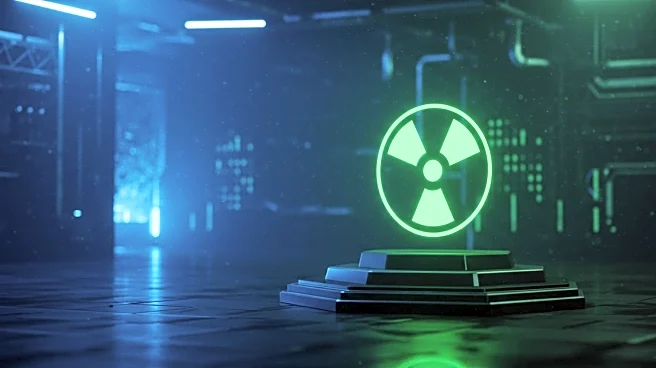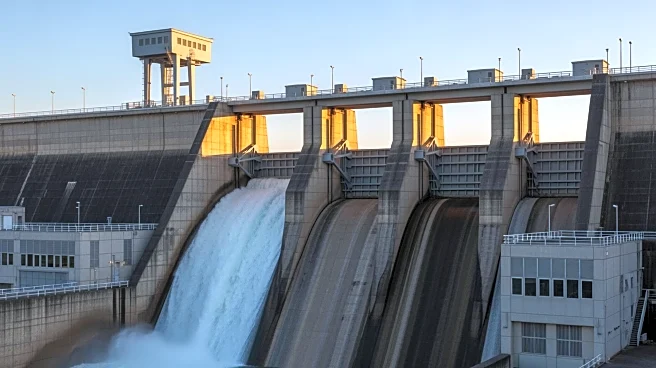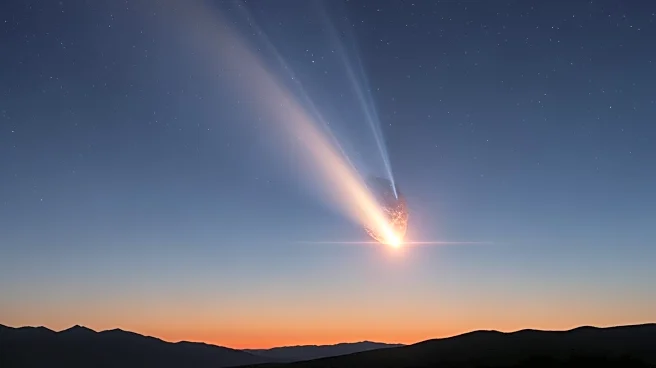What's Happening?
The International Atomic Energy Agency (IAEA) has released data indicating that five countries, including the United States, account for over two-thirds of the world's nuclear electricity generation capacity. The United States leads this group, followed by France, China, Russia, and South Korea. As of June 2025, there are 416 nuclear power reactors operating globally across 31 countries, with a total installed capacity of 376 gigawatts. The U.S. operates 94 nuclear reactors, making it the largest producer of nuclear electricity worldwide. In 2024, nuclear power contributed 19% of the U.S. electricity generation, accounting for 30% of the global total. The U.S. nuclear fleet operates at a high capacity factor of 92%, reflecting increased efficiency in managing generation outages.
Why It's Important?
The dominance of the United States in nuclear power capacity underscores its significant role in global energy security and electricity generation. Nuclear power is a critical component of the U.S. energy mix, providing a stable and reliable source of electricity that helps reduce dependence on fossil fuels. This capacity contributes to the country's energy independence and supports efforts to mitigate climate change by reducing carbon emissions. The high capacity factor of U.S. reactors indicates efficient operations, which can lead to lower electricity costs and increased competitiveness in the energy market. The data also highlights the strategic importance of nuclear energy in geopolitical terms, as countries like China and Russia continue to expand their nuclear capabilities.
What's Next?
China is rapidly expanding its nuclear capacity, with 28 reactors under construction, which could soon surpass France's capacity. This growth may shift the balance of nuclear power globally, impacting international energy markets and geopolitical dynamics. The U.S. may need to consider further investments in nuclear technology and infrastructure to maintain its leadership position. Additionally, ongoing developments in nuclear technology, such as advanced reactor designs, could influence future energy policies and international collaborations.
Beyond the Headlines
The expansion of nuclear power raises ethical and environmental considerations, including the management of nuclear waste and the safety of reactor operations. As countries invest in nuclear technology, there is a need for robust regulatory frameworks to ensure safe and sustainable practices. The geopolitical implications of nuclear energy also involve considerations of nuclear proliferation and international security, as countries seek to balance energy needs with global peace and stability.








